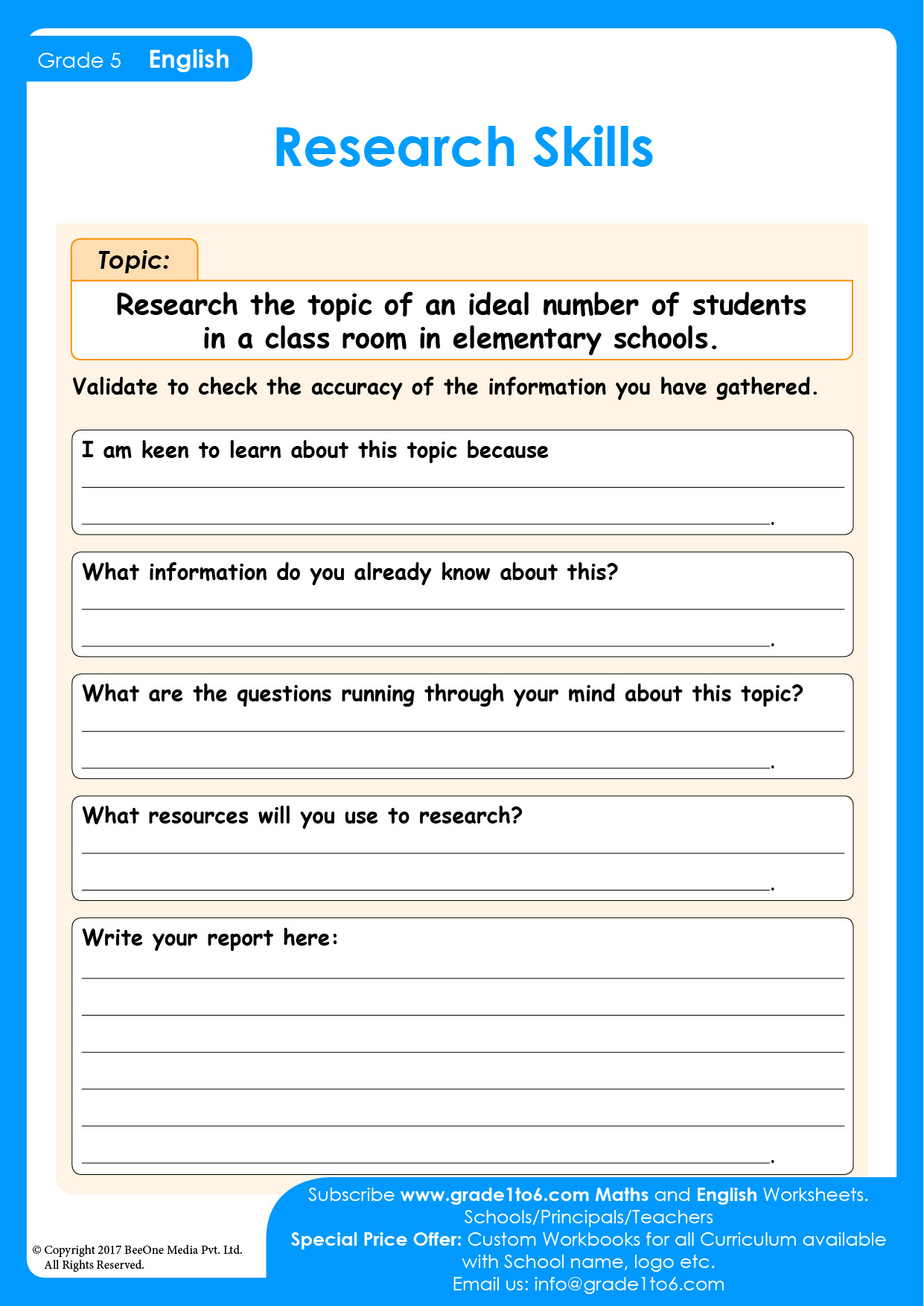
Unlocking Academic Potential: The Transformative Role of Research Skills Worksheets
In an age defined by an overwhelming influx of information, the ability to discern, evaluate, and synthesize knowledge is no longer a niche academic pursuit but a fundamental life skill. From navigating complex professional landscapes to making informed personal decisions, robust research capabilities are paramount. While the concept of research might conjure images of university libraries and advanced scientific laboratories, the foundational elements of effective inquiry are built much earlier, often within the structured environment of a classroom. This is precisely where research skills worksheets emerge as invaluable tools, offering a pedagogical bridge to guide learners through the intricate process of becoming proficient information seekers and critical thinkers.
At its core, research involves systematic investigation to establish facts, reach new conclusions, or revise existing ones. This seemingly straightforward definition belies a multifaceted process encompassing a range of sub-skills: formulating precise questions, identifying credible sources, extracting relevant information, organizing data, synthesizing findings, attributing sources properly, and presenting conclusions coherently. For many students, particularly in the earlier stages of their academic journey, these steps can feel daunting and disconnected. Research skills worksheets serve to break down this complex process into manageable, actionable steps, providing a scaffolded approach that builds confidence and competence progressively.
The Anatomy of Essential Research Skills Addressed by Worksheets

Effective research is a culmination of several interconnected competencies. Worksheets are designed to target each of these areas, offering focused practice and immediate application.
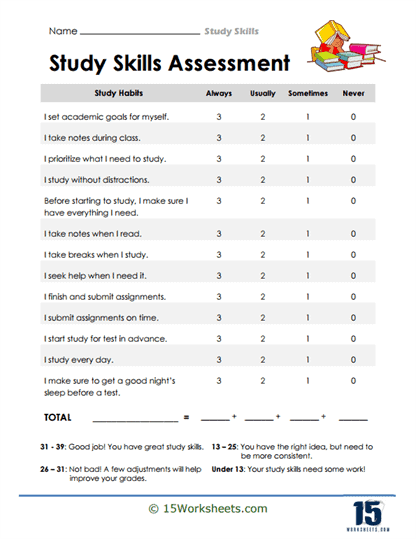
-

Formulating Effective Research Questions: The journey of any successful research project begins with a well-defined question. Vague or overly broad questions lead to unfocused searches and irrelevant information. Worksheets in this area might guide students through brainstorming topics, narrowing down broad subjects, and transforming interests into specific, answerable questions. They often include prompts like "What do I already know? (K)" "What do I want to know? (W)" and "What did I learn? (L)" (K-W-L charts), or exercises that challenge students to identify the "who, what, where, when, why, and how" of a potential topic.
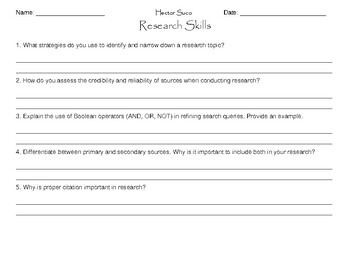
-
Information Gathering and Source Identification: Once a question is posed, the next step is to find answers. This involves understanding different types of sources (books, journals, websites, interviews), knowing where to look (libraries, databases, reputable online platforms), and employing effective search strategies (keywords, Boolean operators). Worksheets can provide checklists for identifying various sources, prompts for brainstorming keywords, or exercises that simulate database searches, encouraging students to think strategically about where information resides.
-
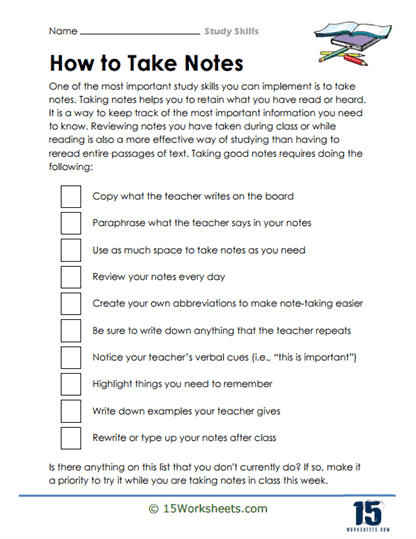
Evaluating Sources for Credibility and Relevance: In the digital age, information abundance often comes with the challenge of misinformation. Teaching students to critically evaluate sources is arguably one of the most vital research skills. Worksheets often incorporate frameworks like the CRAAP test (Currency, Relevance, Authority, Accuracy, Purpose) or similar checklists. Students are given sample articles or websites and tasked with assessing their reliability based on specific criteria, such as the author’s credentials, the publication date, potential biases, and supporting evidence. This hands-on evaluation process is crucial for developing media literacy.
-
Effective Note-Taking and Information Organization: Merely finding information is not enough; students must be able to extract and organize it in a way that facilitates synthesis. Disorganized notes lead to confusion and difficulty in recalling information. Research skills worksheets offer structured templates for note-taking, such as Cornell notes, outlining templates, or graphic organizers that help students categorize information, identify main ideas, and record supporting details and source citations. These tools prevent information overload and make the later stages of writing much more manageable.
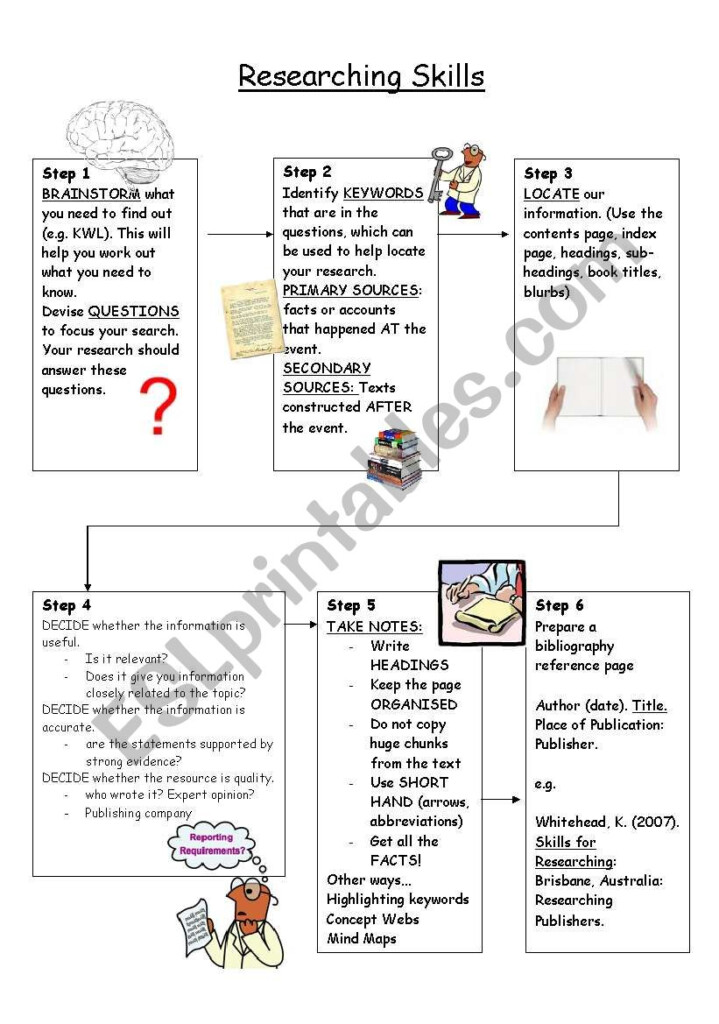
-
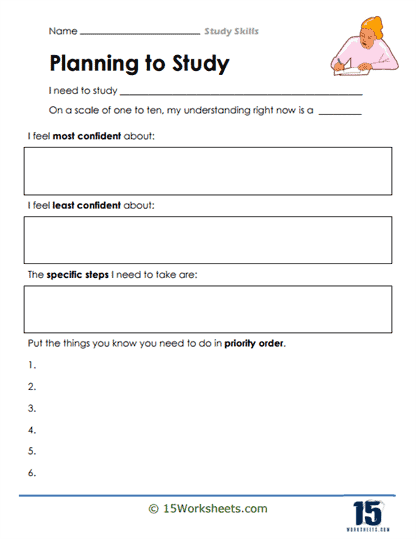
Synthesizing Information and Constructing Arguments: True research goes beyond simply collecting facts; it involves bringing together disparate pieces of information to form new understandings or support a thesis. Worksheets can aid in this complex process by providing frameworks for comparing and contrasting different perspectives, identifying common themes, or mapping out arguments. Graphic organizers that prompt students to connect evidence to claims, or exercises that require students to summarize multiple sources on a single topic, are excellent examples.
-
Citing Sources and Avoiding Plagiarism: Academic integrity is non-negotiable, and understanding how to properly attribute information is a cornerstone of ethical research. Plagiarism, whether intentional or accidental, is a serious academic offense. Worksheets can demystify citation styles (MLA, APA, Chicago), offering practice in formatting bibliographies and in-text citations. They might also present scenarios that challenge students to identify instances of plagiarism and explain how to properly paraphrase, summarize, or quote. This direct engagement helps solidify comprehension of intellectual property rights and academic honesty.
-
Presenting Findings: The final step in the research process is communicating the findings effectively. Worksheets can help students outline their research papers, structure presentations, or even design visual aids. They might include rubrics for assessing clarity, organization, and persuasive elements in a final product, ensuring students understand the expectations for effective communication.
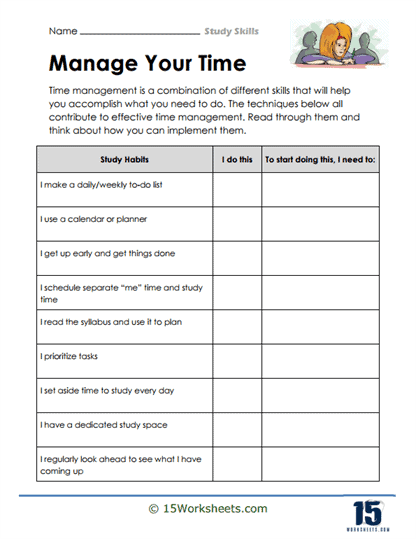

Pedagogical Benefits of Integrating Research Skills Worksheets
The widespread adoption of research skills worksheets in educational settings is not arbitrary; it stems from a clear understanding of their pedagogical efficacy.
- Structured Learning Pathway: Worksheets provide a clear, step-by-step guide through the research process. This scaffolding is particularly beneficial for novice researchers, breaking down an intimidating task into manageable chunks.
- Active Engagement and Critical Thinking: Unlike passive learning methods, worksheets demand active participation. Students are not just absorbing information but actively applying concepts, making decisions, and evaluating data, thereby fostering deeper critical thinking skills.
- Reinforcement and Retention: Repetitive practice, facilitated by well-designed worksheets, helps solidify understanding and ingrain essential skills. The hands-on nature aids in memory retention, making it easier for students to recall and apply these skills in future contexts.
- Facilitating Self-Assessment and Feedback: Many worksheets include clear instructions and sometimes answer keys or rubrics, allowing students to assess their own understanding and identify areas needing improvement. This self-directed feedback loop is crucial for independent learning.
- Promoting Independence and Confidence: As students successfully complete various worksheet tasks, they build confidence in their research abilities. The structured support eventually allows them to undertake more complex research projects independently.
- Versatility and Differentiation: Worksheets can be easily adapted to suit different age groups, learning styles, and proficiency levels. A basic "finding keywords" worksheet for elementary students can evolve into a complex "Boolean operator practice" sheet for high schoolers.
- Building a Foundation for Lifelong Learning: The skills honed through these worksheets extend far beyond academic assignments. They are transferable to professional careers (e.g., market research, data analysis, report writing) and personal life (e.g., evaluating news sources, making informed purchasing decisions).
Implementing Research Skills Worksheets Effectively
While the benefits are clear, the effective implementation of research skills worksheets requires thoughtful planning and integration into the curriculum.
- Scaffolding Learning: Introduce skills incrementally. Start with basic concepts (e.g., identifying keywords) before moving to more complex ones (e.g., synthesizing multiple sources).
- Integrating with Authentic Research Tasks: Worksheets should not be isolated exercises. They are most effective when directly linked to a larger research project or inquiry-based learning activity. This provides real-world context and motivation.
- Providing Clear Instructions and Examples: Ensure students understand the purpose of each worksheet and how to complete it. Model the desired thinking process and provide examples of correct and incorrect responses.
- Encouraging Reflection and Discussion: After completing a worksheet, facilitate a discussion. Ask students what they learned, what challenges they faced, and how they might apply the skill in the future. This metacognitive reflection deepens understanding.
- Leveraging Digital Tools: Many platforms offer interactive digital worksheets that can provide instant feedback, track progress, and integrate multimedia elements, enhancing engagement and accessibility.
Beyond the Classroom: The Enduring Value
The impact of well-developed research skills extends far beyond the confines of academic success. In an economy increasingly reliant on information and innovation, individuals who can efficiently and ethically navigate vast datasets, identify reliable trends, and formulate data-driven conclusions are highly valued. From scientists and journalists to entrepreneurs and policy makers, the ability to conduct thorough research is a cornerstone of professional efficacy. Moreover, as citizens in a democratic society, the capacity to critically evaluate information from various sources is essential for informed civic engagement and responsible decision-making.
In conclusion, research skills worksheets are far more than mere busywork; they are carefully designed pedagogical instruments that provide the necessary structure and practice for students to master the complex art of inquiry. By breaking down the research process into manageable components, fostering critical thinking, and promoting active engagement, these worksheets empower learners to become independent, discerning, and ethical researchers. In a world awash with information, equipping the next generation with these fundamental skills is not just an educational imperative but a societal necessity. Investing in the systematic development of research capabilities through effective worksheets is an investment in a more informed, critical, and capable future.
